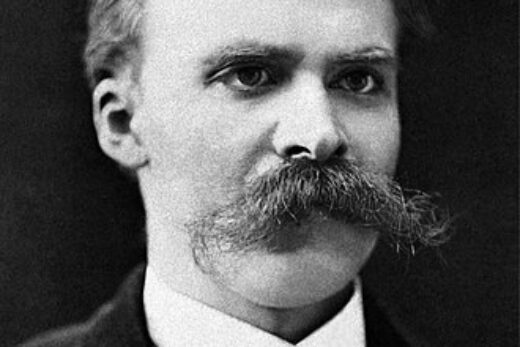Stoicism, an ancient philosophy practiced by eminent thinkers, continues to resonate powerfully in our current era, offering pearls of wisdom to navigate the complexities of life. In this article, we’ll delve into the best Stoic quotes, which encapsulate the core tenets of Stoicism across ten key categories. These categories represent the essence of Stoic teachings and explore various facets of life from the Stoic perspective. Quotes from renowned Stoics such as Epictetus, Marcus Aurelius, Seneca, and others, along with insights from individuals who embody the spirit of Stoicism, will guide us through this exploration. Brace yourself for an enriching journey through the insightful world of Stoic philosophy.
- 1. The Stoic Art of Control
- 2. Stoicism: Making Peace with Uncertainty
- 3. The Duality of Life: Stoic Insights
- 4. Stoicism and the Power of Perception
- 5. Stoicism on Criticism and Detachment
- 6. Stoicism: Choice and Tranquility
- 7. Stoic Freedom: Mastering Desire
- 8. Stoic Perspective on Time and the Present Moment
- 9. Stoicism: Character as Destiny
- 10. Stoicism on Life, Death and Acceptance
- Frequently Asked Questions (FAQ)
1. The Stoic Art of Control
“Some things are in our control and others not.” – Epictetus
Epictetus emphasizes the Stoic principle of focusing on what’s within our control, and accepting what isn’t. It’s a call to shift our attention from external circumstances to our own responses, which we have the power to influence.
“The more we value things outside our control, the less control we have.” – Marcus Aurelius
Marcus Aurelius highlights the pitfall of investing too much in externals, which only erodes our sense of control. Real control lies in our internal responses and attitudes.
“Choose not to be harmed, and you won’t feel harmed. Don’t feel harmed, and you haven’t been.” – Marcus Aurelius
This quote underscores our ability to interpret experiences in ways that maintain our peace. It’s not the event, but our perception of it, that determines whether we feel harmed.
Key Takeaways:
2. Stoicism: Making Peace with Uncertainty
“People will choose unhappiness over uncertainty.” – Timothy Ferriss
Ferriss reminds us that clinging to discomfort out of fear of uncertainty is a self-limiting choice. Stoicism encourages embracing uncertainty as a part of life’s rhythm.
“Fate leads the willing and drags along the reluctant.”- Seneca
Seneca encapsulates the Stoic principle of amor fati, or “love of fate.” By accepting and even loving what life brings, we develop resilience and find peace.
Key Takeaways:
3. The Duality of Life: Stoic Insights
“There could be no justice, unless there were also injustice; no courage, unless there were cowardice; no truth, unless there were falsehood” – Chrysippus
Chrysippus reminds us of the dualistic nature of life. The existence of virtues requires the existence of their opposites. By recognizing injustice, cowardice, and falsehood, we come to understand, appreciate, and strive for justice, courage, and truth. It’s this dichotomy that gives meaning to our actions, reminding us that our values are defined not just by what we pursue, but also by what we stand against.
Key Takeaways:
4. Stoicism and the Power of Perception
“It is not events that disturb people, it is their judgements concerning them.”- Epictetus
Epictetus underscores the core Stoic principle that our interpretations, not the events, evoke our emotions. It’s our attached judgments that disturb us, not the circumstances themselves. Knowing this, we can master our responses and maintain inner peace.
“The happiness of your life depends upon the quality of your thoughts.” – Marcus Aurelius
Marcus Aurelius teaches us that happiness is shaped by our mental processes. Our external world doesn’t dictate our joy, but our inner dialogues do. By refining our thoughts, we can steer our happiness and live a rewarding life.
“We suffer more often in imagination than in reality.” – Seneca
Seneca brings to light our tendency to suffer through imagined scenarios more than real events. By concentrating on the present instead of potential problems, we can circumvent unnecessary distress.
Key Takeaways:
5. Stoicism on Criticism and Detachment
“If anyone tells you that a certain person speaks ill of you, do not make excuses about what is said of you but answer, ‘He was ignorant of my other faults, else he would not have mentioned these alone.‘” – Epictetus
Epictetus offers a clever retort to criticism, advocating humility and self-awareness. Seeing criticism in this light lets us embrace personal growth and stay unperturbed.
“Receive without pride, let go without attachment.” – Marcus Aurelius
Marcus Aurelius embodies Stoic temperance here: accept gifts without pride, and let go without clinging. Such a mindful balance aids tranquility.
Key Takeaways:
6. Stoicism: Choice and Tranquility
“Hard choices, easy life. Easy choices, hard life.” – Jerzy Gregorek
Though not a Stoic, Gregorek aptly captures a Stoic principle: embracing tough decisions leads to an easier life. Conversely, easy choices can complicate life down the road.
“The best answer to anger is silence.” – Marcus Aurelius
Marcus Aurelius encourages us to meet anger with silence, an effective tool to maintain tranquility amidst conflict. This proactive choice promotes introspection and possible mutual understanding.
Key Takeaways:
7. Stoic Freedom: Mastering Desire
“Freedom isn’t secured by filling up on your heart’s desire but by removing your desire.” – Epictetus
Epictetus states that freedom is about mastering our desires, not fulfilling them. Excessive desire can bind us, causing discontent. By practicing self-control, we can find peace.
Key Takeaways:
8. Stoic Perspective on Time and the Present Moment
“Time is like a river made up of the events which happen, and a violent stream; for as soon as a thing has been seen, it is carried away, and another comes in its place, and this will be carried away too.” – Marcus Aurelius
Marcus Aurelius invokes the flowing nature of time. He advises us to accept life’s fleeting nature and cherish each moment, embracing change and living in the present.
“True happiness is to enjoy the present, without anxious dependence upon the future.” – Seneca
Seneca underlines the importance of being present. Often we lose ourselves either in the regrets of the past or the anxieties of the future, missing the beauty of the present. Stoicism calls for the acceptance and full engagement with the present moment, as it’s the only time we truly possess.
Key Takeaways:
9. Stoicism: Character as Destiny
“Character is fate.” – Heraclitus
Heraclitus posits that our character fundamentally shapes our destiny. Our actions, attitudes, and choices, all reflections of our character, determine the path our life takes, thus, in essence, character becomes our fate.
“It is not the man who has too little, but the man who craves more, that is poor.” – Seneca
This Seneca quote underlines the difference between physical and spiritual poverty, implying that real deprivation is not a lack of resources, but an insatiable desire for more, a perspective that challenges our materialistic norms.
Key Takeaways:
10. Stoicism on Life, Death and Acceptance
“Death, like birth, is a secret of Nature.” – Marcus Aurelius
Marcus Aurelius suggests that death, similar to birth, is an inherent part of life’s cycle, an unknowable mystery embedded within the natural order, thus encouraging us to view death with acceptance rather than fear.
“Life is very short and anxious for those who forget the past, neglect the present, and fear the future.” – Seneca
Seneca warns against living in constant anticipation or dwelling on past events, reminding us to focus on the present moment to alleviate unnecessary anxiety and truly appreciate life’s fleeting nature.
Key Takeaways:
Final Thoughts
Stoicism, at its core, guides us toward a fulfilling life experience. It champions our ability to control reactions, promotes embracing uncertainty, and encourages understanding life’s duality. It nudges us to practice mindfulness, see criticism as a growth avenue, and shows us that choosing the hard path can yield fulfillment. As relevant today as millennia ago, Stoicism serves as a compass in our journey of pursuing virtue, tranquility, and a profound engagement with life’s realities
Frequently Asked Questions (FAQ)
1. What is the main idea of stoic philosophy?
Stoicism is an ancient philosophy that primarily teaches the development of self-control and fortitude to overcome destructive emotions. The core idea is understanding the distinction between what we can control (our actions, judgments, and reactions) and what we can’t (external events and circumstances). This understanding helps us respond to life’s challenges with tranquility and acceptance.
2. What are the 4 virtues of Stoicism?
Stoicism proposes four cardinal virtues:
- Wisdom (the ability to navigate complex situations in a logical, informed, and calm manner).
- Courage (not just physical, but the moral courage to do what is right).
- Justice (treating others with fairness even when they have done wrong).
- Temperance (the exercise of self-restraint and moderation in all aspects of life).
3. Is Stoicism against Christianity?
Stoicism and Christianity have some overlapping principles, such as the emphasis on virtue and ethics. However, they also have significant differences. Stoicism is more focused on self-reliance and the acceptance of fate, whereas Christianity emphasizes divine grace and intervention. That said, many Christians have found value in Stoic practices and ideas as a complement to their faith, not a contradiction.
4. What are stoic beliefs on life?
Stoics believe that life’s purpose is to live in accordance with nature, which includes accepting life’s trials with equanimity and focusing on what’s within our control. They advocate for virtue as the highest good and stress the importance of wisdom, courage, justice, and temperance in navigating life’s complexities.
5. Do Stoics believe in God?
Stoicism isn’t necessarily theistic or atheistic. The classical Stoics believed in the concept of a rational and providential cosmos, often personified as “Zeus” or “Nature.” This is not exactly the same as a personal God as understood in many theistic religions, but more of an impersonal divine principle. However, individual Stoics may interpret this in various ways, including in alignment with traditional religious beliefs.
Remember, the journey through Stoic philosophy is deeply personal, and the most important aspect is how these teachings aid you in leading a virtuous, peaceful, and fulfilling life.



